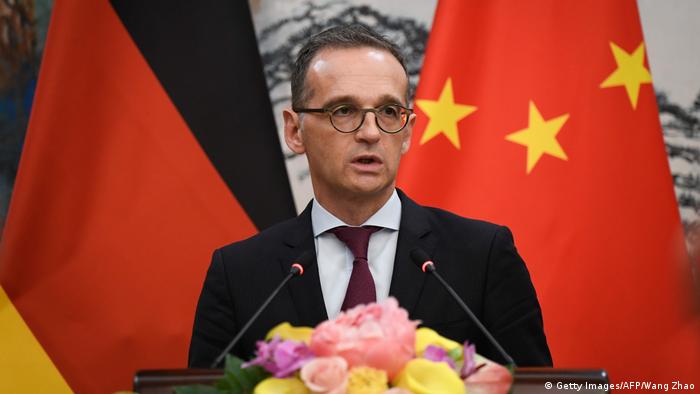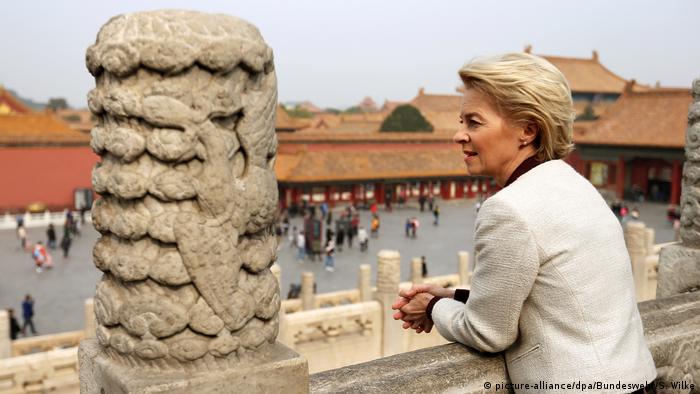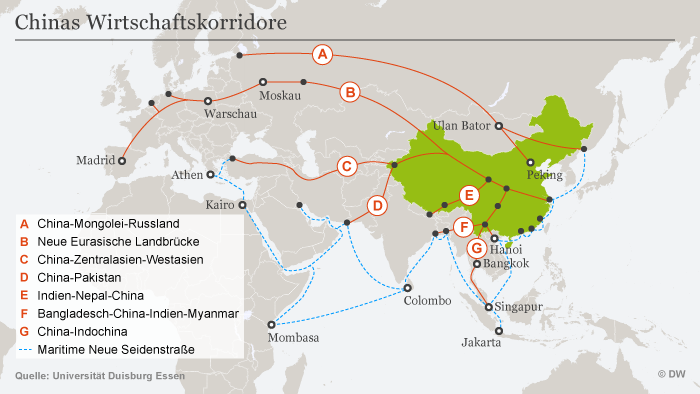The human rights dialogue is more difficult, the economic relations to stagnate. For a self-conscious handling of Berlin with Beijing, it needs strategic investments in the technologies of the future.

The German Federal Minister for foreign Affairs had only just arrived in Beijing, when he said a sentence that should determine his entire visit in the people’s Republic of China Inaugural: “With re-education camps, we can’t resign ourselves,” said Heiko Maas.
His Chinese colleague Wang Yi Maas collided with his criticism of a lack of understanding: “these are internal Affairs of China”, rejected the Chinese foreign Minister, the criticism of the German visit. In Berlin, there had been only recently between the Chinese Embassy and the Federal government is upset about a debate in the Bundestag on the situation in Xinjiang.
So far, Germany’s government representatives were welcome guests in the people’s Republic. Maas is the third Cabinet member that this year China traveled to. Only a few weeks ago, defence Minister Ursula von der Leyen was visiting.

For the first Time traveled to defense Minister Ursula von der Leyen in October to China
The German Chancellor flew to the beginning of the year, already for the eleventh Time in its twelve-year tenure in the people’s Republic – under a circuit, says the political scientist Thorsten Benner: “The German China policy has traditionally had three life-lie,” says the Director of the Berlin-based Global Policy Institute.
The end of “change through trade”?
For one, have not proved to be true the premise of “change through trade”. Namely, the hope that Communist would be Japanese ruled people’s Republic of by a market economic Opening up and democratising. Second, Germany and China are more complementary trade partners, but also competitors in some industries. Thirdly, you have believed, says Benner, “if we maintain very strong bilateral relations with China, that is also good for a common European China policy.”
For Benner, a change of heart between the trading partners is now: “There has been a rethink.” Chinese projects such as the “Belt and Road Initiative”, with the help of China, infrastructures in the Tradition of the historical silk road is to build up, would now be seen in Germany and Europe is critical: “Because China paid for by large investments in infrastructure in countries such as Greece and the Balkans political influence.”

While the German government has prevented, in the summer, the entry of a Chinese state-owned company to a German electricity network operators, China growing influence on Germany’s infrastructure elsewhere recently before: In the case of the 2019 planned auction of frequency licenses for the 5G data transmission security experts fear the participation of the Chinese group Huawei, which has close ties to the Chinese government are said to have.
Holds Germany on 5G-network expansion, with China’s Huawei?
The USA and Australia blocked Huawei’s participation in its network expansion. “A concrete legal basis, the legal consequence of the complete or partial exclusion of a certain provider from the 5G roll-out in Germany exists and is not planned” – quoted by the business newspaper “Handelsblatt”, a reply of the Federal Ministry of the interior to a written question by Katharina Dröge, spokesperson of the Greens in the Bundestag for competition and trade policy.
This is due to the fact that in Germany and Europe, the debate on technological sovereignty rekindled. “We have not, as yet, been thinking about our telecommunications network as a critical infrastructure,” says Benner. “And what it means to the security of this critical infrastructure.”
But to have the Federal government seems to have recognized that investments in future technologies are essential for dealing with China, such as in Artificial intelligence . “Germany and Europe must be in the future, the leading site for Artificial intelligence,” said Chancellor Angela Merkel at a Cabinet retreat, the digital strategy for Germany. A three billion Euro heavy investment package should help Germany, the innovation gap can catch up and position themselves strategically. “Our future prosperity depends largely on the state and the question of whether and how we can defend our European values of the Dignity of every human being and the protection of privacy in the digital age.”

In Brussels, welcomed this step. For security experts, KI has long been more than just a technology of the future. “It is a strategic tool,” says Daniel Gay by the EU Institute for security studies (EU-ISS). Similar to gasoline or electricity, at the time, KI is an achievement that will not only change the industry, but also security and defence policy. “It is a critical Moment in which we need to about the importance of Artificial intelligence for the European defence policy thinking.”
The ability to compete with China and the strategic use of technologies is for the German and European security policy, it is also part of a General change in the understanding of foreign policy. International politics is not disputed for a long time only in the analog space.
“It’s about the technology, but also to the question of who sets the Standards?” Thorsten Benner says. “We are in a contest between a liberal and a social democracy and a market economy with a high-tech authoritarian state capitalism with Chinese characteristics.”
Germany wants to cooperate with China in the security Council
Germany needs a good negotiating position if it wants to assert itself in global competition.
In cooperation with China the Minister Heiko Maas, a lot of has before the outside. “If we want to prevent new arms races, then we need more and not less rules. Not only in Europe, but also globally,” said Maas, after talks with Vice-President Wang Qishan and his counterpart Wang Yi. The concerns, both efforts to prevent an exit of the USA from the Treaty with Russia for disarmament, in the case of intermediate nuclear weapons (INF), but also discussions on the regulation of new weapons systems – also in the field of Artificial intelligence and robotics.
“So that was exhausting, but this was an important visit,” says the foreign Minister, Heiko Maas, in a video message during his return flight from Beijing balance sheet.
“China will be more important in the future and we need to have a good rapport.” For this wire Germany must not miss the connection to new technologies.

